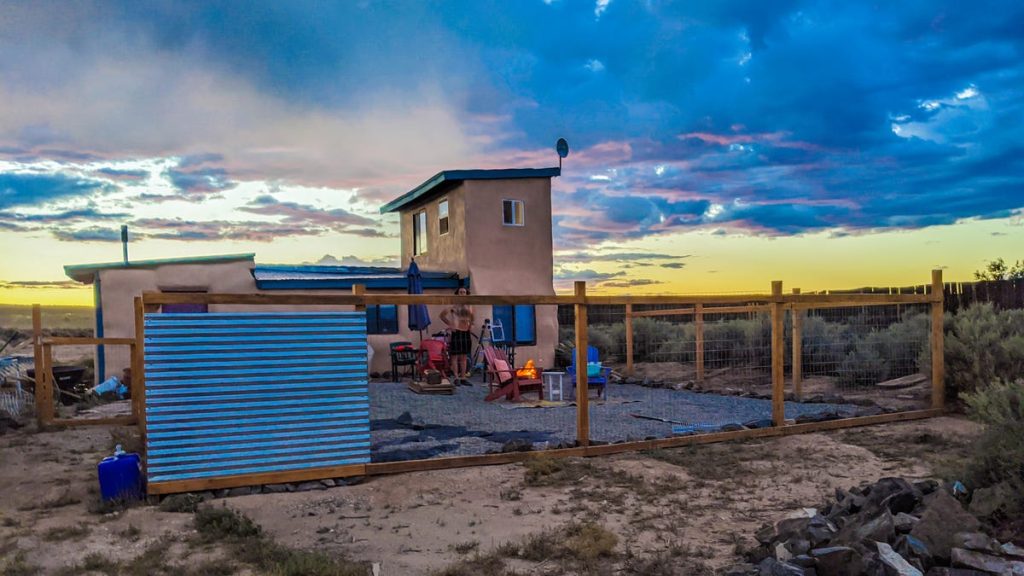Living off-grid requires a commitment to sourcing all necessities independently, such as food, shelter, energy, and water. The water source is particularly crucial, especially in a high desert region where drilling a well is impractical. Thus, rain catchment becomes essential, and the author describes their system of gutters collecting rainwater into tanks for storage. This system requires maintenance and testing to ensure the purity of the water, as it serves as the primary source for the household. The author also highlights the physical effort involved in hauling water during dry periods when the tanks run low, emphasizing the value of each gallon of water and the consciousness it raises regarding consumption.
In addition to water, the author discusses their decision to use a compost toilet as a water-saving measure, despite the challenges it presents. The maintenance of this toilet system is described, alongside the benefits of having a garden that thrives on gray water from sinks and baths. The garden, while not award-winning, provides a sustainable source of fruits, vegetables, and herbs, showcasing the resourcefulness and creativity required to maintain a successful off-grid lifestyle. Despite the challenges and occasional mishaps, the author finds fulfillment in the self-sufficiency and environmental benefits of their choices.
Sourcing energy off-grid involves various methods, from generators to solar panels, each with its own pros and cons. The preference for solar energy and the use of a wood pellet stove for heating are detailed, highlighting the trade-offs between convenience, sustainability, and reliance on industrial products. The author acknowledges the challenges related to the supply chain for pellets and the potential for future adjustments to the energy system. While off-grid living comes with its share of difficulties, the author finds satisfaction in the reduced environmental impact and increased independence that it offers.
Aside from the practical aspects of off-grid living, the author reflects on the deeper understanding and appreciation gained from managing basic needs independently. This newfound insight into the workings of essential systems like water and power inspires a broader perspective on the interconnectedness of various societal structures. The experience of setting up and maintaining off-grid systems leads to a greater awareness of the hidden mechanisms behind everyday conveniences, fostering a sense of responsibility and respect for resources. The author suggests that this hands-on approach to sustainability could benefit society as a whole by promoting a deeper understanding and engagement with shared systems.
In conclusion, the challenges and rewards of off-grid living are presented through the lens of personal experience, illustrating the complexities and benefits of self-sufficiency. Through managing water, energy, and other necessities independently, the author gains insight into the interconnected systems that sustain modern life. The conscious effort required to maintain off-grid systems heightens awareness and appreciation for essential resources, leading to a more sustainable and fulfilling lifestyle. Despite the obstacles faced, the author finds value in the lessons learned and the self-reliance developed through living off-grid, highlighting the potential for positive change in personal and shared systems by taking a hands-on approach to sustainability.


